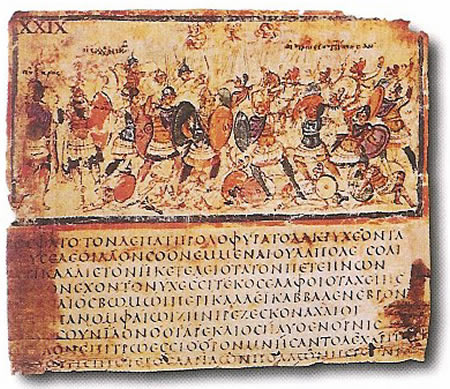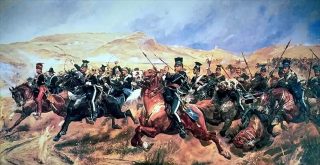For a team to be successful, team members must put the interests of the team above their own. It’s necessary for team members, at times, to sacrifice their ego, play a supporting role, and in some deep sense, care more for the success of the team than for individual achievement and glory. These are timeless truths with roots extending far back to the very dawn of human culture. Cooperation has been reinforced, generation after generation, through the evolution of human culture. Agriculture, barter, trade, building and waging war – they all require some level of teamwork. Those tribes that mastered teamwork accumulated wealth, solved problems, conquered their neighbors and more successfully prepared their offspring for survival.
However, our long history of cooperation as a species does not mean we have mastered teamwork. Getting a team to perform at its highest level is not easy. As a culture, we’ve long recognized the challenges of teamwork. The Iliad, among the oldest existing works of Western literature, written somewhere around the 8th century BC, is essentially about a breakdown in teamwork. In the famous story, Agamemnon, the leader of the Greeks, offends his best warrior, Achilles. When Agamemnon is forced by the gods to give up his slave-girl, in a selfish move he takes Achilles’ slave-girl to replace his own. Agamemnon and Achilles take turns insulting one another and impugning each other’s motives. Eventually, Achilles is sent into a rage and just like that, trust erodes, the unity of the Greek army breaks down, and tragedy ensues.
In the Iliad, Agamemnon and Achilles lose sight of the purpose that originally drew them together and motivated them to travel to Troy in the first place; namely to defeat the Trojans and return home glorious. Instead, Achilles removes himself from the fighting, essentially sitting on the sidelines as his team remains on the field in a bitter fight. Achilles goes so far as to root for the other team, the Trojans, hoping that his team, the Greek army, is so weakened and desperate that they will finally recognize and appreciate his role on the team.
Why is the Iliad still so widely read today, and continues to be taught in our Universities? The central theme of the Iliad reflects the same conflicts and struggles we encounter every day in our modern world. How often are we on teams where egos are bruised because some careless words are misinterpreted? Or a selfish team member is sabotaging the team to pursue their own narrow interests? Right at the very beginning of Western Civilization there is a recognition of both the importance of teamwork, and an acknowledgement of the precarious nature of teams. A number of things must go right for a team to be successful, but there’s a thousand ways a team can unravel.
We’ve all been on a team that clicks. Everything seems to be flowing smoothly. Team members understand their role and they deliver above and beyond what is expected of them. Communication is clear and effective. Team members feel safe to voice their opinion. There is a clear sense of why the team exists and what you are aiming for. The team is able to achieve more than you ever thought possible.
And then we’ve been on other teams, where nothing seems to go right. Communication breaks down. There are conflicting goals about the future. Roles and responsibilities are poorly defined. Promises are broken and trust erodes. The values of some on the team conflict with the values of others. Team members do the very minimum of what is required, and sometimes not even that. Eventually people stop giving their best effort and a vicious cycle spirals downward toward failure.
As the world becomes more complicated and interconnected, the importance of teamwork grows. As our roles in society become ever more specialized, our ability to cooperate and work effectively with others is a skill that becomes increasingly critical to society.
There is no magic formula where you can plug in the variables for your team and spit out a solution. However, there are traits that successful teams share. These traits cross functions, disciplines, industries, cultures, even generations. These traits include:
Clarifying a purpose for why the team exists.
Defining a vision for what the team is ultimately trying to achieve.
Identifying the values and behaviors that the team believes in deeply, and are important and critical for success.
Establishing a culture that reinforces and protects the values and behaviors.
Developing a strategy or plan to get the team for where it is today to where it wants to be.
Setting goals, both individually and as a team, that serve to move the team forward.
Creating feedback loops to ensure the team is facing reality and to measure progress toward goals.
Selecting the right players, with a balance of talent, interpersonal skills and character.
And finally, having the leadership to oversee all these traits and to inspire, motivate and lead the team into the future.
Sean P. Murray is an author, speaker and consultant in the areas of leadership development and talent management. Learn more at RealTime Performance.
Twitter: @seanpmurray111
Image Source: Iliad VIII 245-253 in cod F205, Milan, Biblioteca Ambrosiana. Licensed under Wikimedia Commons.



[…] Throughout history, collaboration has proven to be the driving force in our civilization, and the same holds true today. […]